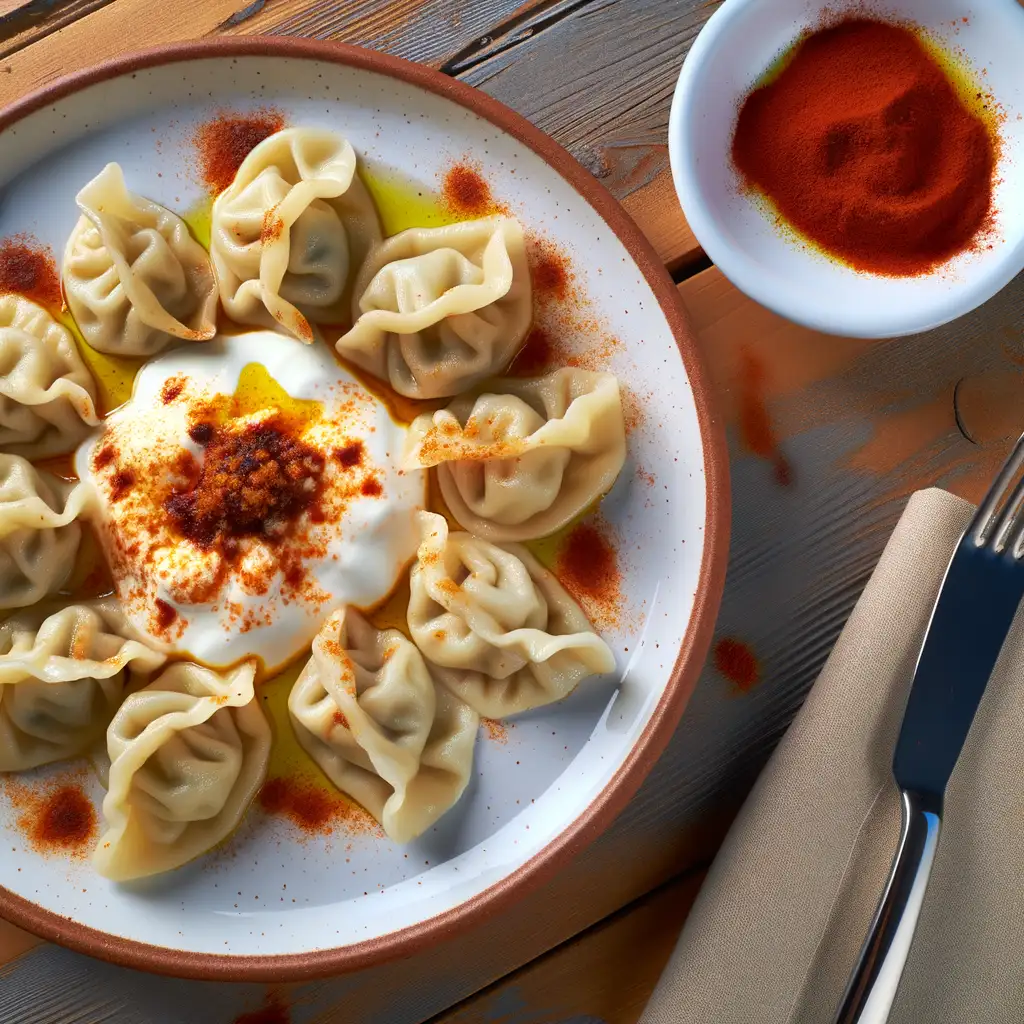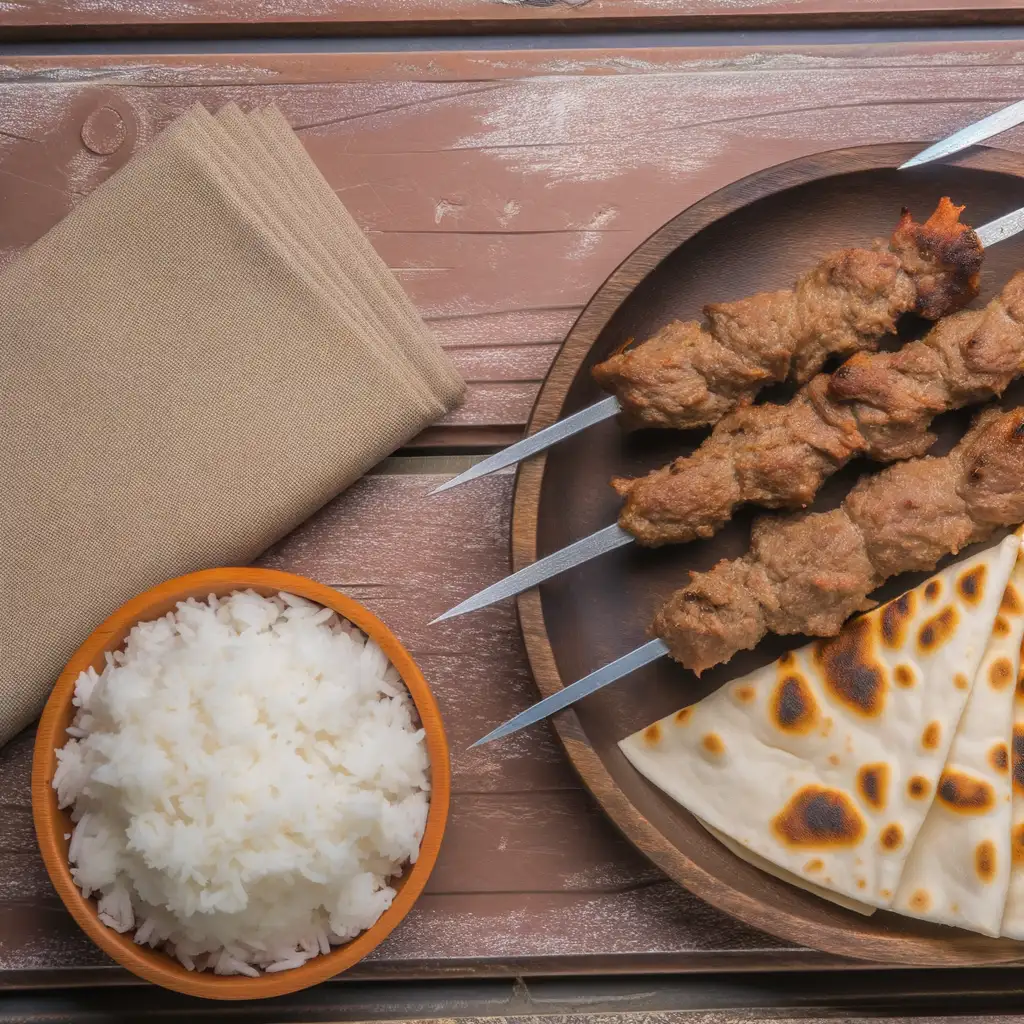



If you wander into Tashkent,you’ll immediately notice a unique blend of old and new that feels surprisingly alive. The city hums with a gentle energy—modern trams glide past Soviet-era buildings,while fragrant bazaars buzz with the chatter of locals bargaining over fresh spices and handwoven textiles. There’s a warmth in the air,not just from the sun but from the genuine smiles of people eager to share their stories and traditions. Walking through Tashkent’s streets,you’ll catch the scent of freshly baked non bread mingling with the earthy aroma of green tea brewing in teahouses. The city’s parks offer a peaceful escape,where the rustle of leaves and the distant call of street musicians create a soothing soundtrack. At night,the city lights up with cozy cafes and lively squares where you can savor plov,a hearty Uzbek rice dish,bursting with flavors that tell tales of centuries-old recipes. What makes Tashkent truly special is its character—a crossroads of cultures shaped by Silk Road history and Soviet influences,yet fiercely proud of its Uzbek roots. The architecture is a fascinating mix:intricate tilework on ancient madrasahs stands alongside sleek,glassy skyscrapers. It’s a place where tradition and modernity don’t just coexist; they dance together,inviting you to explore,taste,and feel the heartbeat of Central Asia in every step.
The information on this page is currently being reviewed by Tripkliq and should be used as a guide only
Eng word: Hello
Eng pronunciation: Sa-lom
Local language: Salom
Eng word: Goodbye
Eng pronunciation: Khayr
Local language: Xayr
Eng word: Thank you
Eng pronunciation: Rah-mat
Local language: Rahmat
Eng word: How much
Eng pronunciation: Qan-cha
Local language: Qancha
Eng word: Toilet
Eng pronunciation: Ho-jat-kho-na
Local language: Hojatxona
Eng word: Help me
Eng pronunciation: Yor-dam be-ring
Local language: Yordam bering
Eng word: Yes
Eng pronunciation: Ha
Local language: Ha
Eng word: No
Eng pronunciation: Yo-kh
Local language: Yo'q
Eng word: Excuse me
Eng pronunciation: Ke-chi-ra-siz
Local language: Kechirasiz
Tashkent, the capital city of Uzbekistan, has a history that dates back over 2,200 years. It was an important city on the ancient Silk Road, serving as a key trading hub between the East and the West.
In the 14th century, Tashkent became part of the Timurid Empire under the rule of Amir Timur (Tamerlane). The city flourished as a center of culture and learning during this period.
Built in the 16th century, the Kukeldash Madrasah is one of the oldest and most significant Islamic educational institutions in Tashkent. It stands as a testament to the city's rich Islamic heritage.
In 1865, Tashkent was annexed by the Russian Empire. The city became the administrative center of Russian Turkestan, leading to significant urban development and modernization.
Independence Square, formerly known as Lenin Square, is the central square of Tashkent. It symbolizes the independence of Uzbekistan and features important monuments and government buildings.
Opened in 1977, the Tashkent Metro is renowned for its beautiful and ornate stations. It is one of the most impressive metro systems in the world, reflecting the city's architectural grandeur.
The Alisher Navoi Opera and Ballet Theatre, established in 1947, is a cultural landmark in Tashkent. It hosts a variety of performances, showcasing the rich artistic traditions of Uzbekistan.
In 1966, Tashkent was struck by a devastating earthquake. The city was rebuilt with the help of the Soviet Union, resulting in modern infrastructure and new architectural styles.
Chorsu Bazaar is one of the oldest and largest markets in Central Asia. Located in the heart of Tashkent, it offers a vibrant glimpse into the local culture, with a wide array of goods and traditional crafts.
In Tashkent, the most common Power Adaptor is Type C, Type F.



A signature Uzbek dish made with rice, meat (usually lamb or beef), carrots, and spices, often cooked in a large kazan (cauldron).

Steamed dumplings filled with minced meat and onions, often served with sour cream or a spicy sauce.

Various types of grilled meat skewers, seasoned and cooked over an open flame, often served with fresh herbs and bread.

A dish consisting of boiled meat served over flat noodles, traditionally enjoyed with broth and often garnished with onions.

A hearty noodle dish that features hand-pulled noodles, meat, and a variety of vegetables, typically served in a flavorful broth.

Savory pastries filled with meat, onions, and spices, baked until golden brown, often enjoyed as a snack or appetizer.

Grilled skewers of marinated meat, usually served with fresh vegetables and flatbread, popular for street food and gatherings.

Small dumplings filled with minced meat, similar to manti, typically served in a broth or with a vinegar-based dipping sauce.

A traditional dish made of boiled noodles mixed with shredded meat and seasoned with spices, often served cold.

A sweet confection made from ground nuts, sugar, and flour, often flavored with spices and served as a dessert.
Imagine stepping into a place where the future meets tradition in the most dazzling way—that’s Dubai for you. The moment you arrive,there’s this electric buzz in the air,a mix of ambition and warmth that’s impossible to ignore. Skyscrapers like the Burj Khalifa stretch into the sky,shimmering glass and steel reflecting the golden desert sun,while just a few streets away,you can wander through bustling souks filled with the scent of exotic spices and the chatter of friendly vendors. It’s a city that never feels cold or impersonal,even with its towering modernity.
Walking along the Marina at sunset,you’ll hear the gentle lapping of water against sleek yachts,the distant hum of conversations in dozens of languages,and the occasional call to prayer weaving through the air,grounding you in the city’s rich cultural tapestry. The food scene is a vibrant adventure—imagine tasting freshly grilled shawarma,sweet dates,and rich Arabic coffee,each bite telling a story of the region’s heritage and its global influences.
What really makes Dubai stand out is its fearless spirit. It’s a place where desert dunes meet luxury shopping,where traditional falconry coexists with indoor ski slopes,and where every corner invites you to explore something unexpected. Whether you’re marveling at art installations in Alserkal Avenue or catching the cool breeze on a dhow cruise,Dubai feels alive,inviting you to be part of its ever-evolving story.
The gateway to the Maldives' stunning islands,famous for their crystal-clear waters,overwater villas,and world-class diving spots.
ExploreA historic city that bridges Europe and Asia,offering iconic landmarks like the Hagia Sophia and Bosphorus Strait,along with vibrant markets and cultural experiences.
ExploreImagine stepping into a place where the air hums with the gentle rhythm of waves lapping against sun-warmed shores,and the scent of salty sea mingles with fragrant street food stalls. That’s Phuket for you—a vibrant island that feels alive in every sense. It’s not just the stunning beaches that grab you,but the way the island pulses with a laid-back energy,where colorful markets buzz with chatter and the aroma of grilled seafood fills the air. Walking through the old town,you’ll find charming Sino-Portuguese buildings painted in pastel hues,their shutters creaking softly in the tropical breeze,while tuk-tuks zip by,adding a playful soundtrack to your explorations.
Phuket’s character is a beautiful blend of tradition and liveliness. Temples with golden spires peek out from lush greenery,inviting quiet moments of reflection,while nearby,night markets burst with life—vendors calling out,sizzling woks,and the sweet tang of mango sticky rice tempting your taste buds. The island’s culture is warm and welcoming,with locals who smile easily and share stories over cups of strong Thai coffee or fresh coconut water.
What makes Phuket truly special is how it wraps you in its embrace—whether you’re watching a fiery sunset from a cliffside bar,diving into crystal-clear waters teeming with vibrant marine life,or simply savoring the spicy kick of a freshly made curry. It’s a place that invites you to slow down,soak in the colors,sounds,and flavors,and leave with a heart full of unforgettable moments.
Bali feels like stepping into a vibrant dream where every corner pulses with life and warmth. From the moment you arrive,there’s this unmistakable energy—part spiritual,part playful—that wraps around you like a soft,tropical breeze. Imagine waking up to the gentle rustle of palm leaves and the distant sound of waves crashing against volcanic black sand beaches. The air carries a mix of frangipani blossoms and salty sea spray,instantly grounding you in the island’s natural beauty.
What really makes Bali special is its rich culture woven into everyday life. You’ll see locals in colorful sarongs offering flowers at temple steps,hear the rhythmic beat of gamelan music drifting through the air,and catch glimpses of intricate wood carvings and vibrant paintings in small artisan shops. The island’s spirituality isn’t just something you observe—it’s something you feel,a quiet presence that invites you to slow down and connect.
And then there’s the food—oh,the food! Freshly grilled satay,fragrant nasi campur bursting with spices,and tropical fruits so sweet they almost taste like candy. Whether you’re dining in a bustling market or a cliffside café overlooking the ocean,every bite feels like a celebration of Bali’s rich flavors and traditions. Honestly,Bali isn’t just a place you visit; it’s a place that stays with you,long after you’ve left.
A picturesque island city known for its whitewashed buildings,stunning sunsets,and breathtaking views of the Aegean Sea.
ExploreSkimming devices may be installed on ATMs to steal card information, especially in less secure locations.
Tourists may be offered unfavorable exchange rates or given counterfeit currency when exchanging money outside of official exchange offices.
Scammers posing as police officers may approach tourists, accuse them of minor infractions, and demand on-the-spot fines.
Unlicensed individuals may pose as tour guides and charge high fees for subpar or unnecessary services.
Vendors in tourist-heavy areas may inflate prices for souvenirs, assuming tourists are unaware of the actual value.
Crowded areas, bazaars, and public transport can be hotspots for pickpockets targeting tourists.
Some restaurants may add extra items or inflate prices on the bill, assuming tourists won't notice.
Individuals, sometimes with children, may aggressively beg for money, often using emotional tactics to pressure tourists.
Some taxi drivers may not use meters and overcharge tourists, especially if they are unfamiliar with local rates.
Uzbekistan has very strict laws regarding the possession, use, and trafficking of drugs. The penalties for drug-related offenses are severe and can include long prison sentences. Tourists should avoid any involvement with illegal drugs to prevent serious legal consequences.
In Tashkent, smoking is regulated by national laws that prohibit smoking in public places such as hospitals, educational institutions, public transport, and government buildings. There are designated smoking areas where smoking is allowed. Tourists should be mindful of these regulations to avoid fines.
Vaping is subject to similar regulations as smoking in Tashkent. It is prohibited in public places where smoking is banned. Tourists should use designated areas for vaping and be aware that the same restrictions apply to e-cigarettes and other vaping devices.
What are other people saying about Tashkent?
Recent Social posts about Tashkent
There is nothing to show you for now.